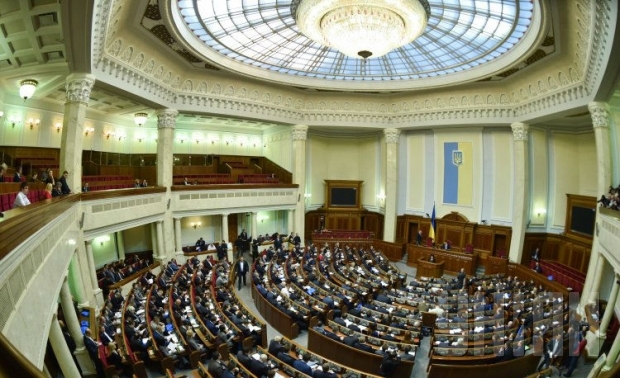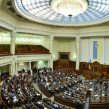
Ukraine, Private Creditors Take a Step Toward Debt Solution
Publication: Eurasia Daily Monitor Volume: 12 Issue: 125
By:

Ukraine has taken one step back from looming default as an agreement was reached to start direct talks with Kyiv’s biggest private creditors. This is despite a setback with Russia, which has refused to discuss the restructuring of a loan issued in 2013 as a reward to then-president Viktor Yanukovych for rejecting an association and free trade accord with the European Union. However, as is often the case with Ukraine, internal problems may turn out to be more difficult to resolve than external ones. Ukraine’s parliament has passed a populist bill obliging banks to convert retail loans issued in dollars and euros into the local currency at rates that may ruin the financial system. If signed into law, the bill may derail Ukraine’s bailout program with the International Monetary Fund (IMF).
An agreement on confidentiality arrangements was reached at a meeting between representatives of the Ukrainian Ministry of Finance, members of the ad hoc committee of Ukraine’s biggest private creditors, who hold around $9 billion of the debt, and International Monetary Fund representatives at the IMF’s Washington office, on June 30. This will allow direct talks with creditors on Ukraine’s commercial debt restructuring, the finance ministry and the committee have said in a joint statement (Minfin.gov.ua, July 1).
The June 30 meeting had been preceded by several weeks of mutual accusations of unwillingness to discuss debt restructuring. Ukraine and the IMF agreed last spring that the $40 billion international assistance package to help the country emerge from crisis caused by economic mismanagement and war would include not only loans from international financial institutions and wealthy countries, but also $15.3 billion to be raised, over four years, through debt restructuring. Ukraine was expected to reach an agreement with private creditors by June 2015.
Yet, problems started immediately, as Russia refused to discuss the $3 billion Eurobond maturing in December, arguing it should not be counted as commercial debt because it is held by the National Welfare Fund (see EDM, April 27). Ukrainian Finance Minister Natalie Jaresko said from the start that all Eurobonds should be restructured, and the Russian one would be no exception (BBC–Russian service, February 19). President Petro Poroshenko labeled the Russian Eurobond a “bribe,” provided to keep Ukraine in the Russian orbit (Bloomberg, June 15).
Russia’s stance could not but affect the attitude of private creditors, who argued that conditions should be equal for all. The lack of progress in talks with creditors prompted fears that the IMF assistance program would be derailed and that Ukraine would default. Ukraine’s parliament allowed the government not to repay foreign commercial loans, which would be tantamount to a default (Lb.ua, May 19). Eventually, the IMF stepped in, making it clear that the IMF would continue its support in any case. IMF Managing Director Christine Lagarde said in a statement last month that if no agreement were reached with the creditors, the IMF could keep lending to Ukraine “consistent with its Lending-into-Arrears-Policy” (Imf.org, June 12).
This gave Ukraine more leeway in talks with its creditors, as it is not obliged to reach an agreement with them at all costs or tied to a strict deadline. Furthermore, the IMF made it clear most recently that Ukraine would receive the next $1.7 billion loan this summer irrespective of the talks’ outcome (Imf.org, July 2). While Ukraine insists on a 40-percent haircut of the debt, and private lenders are reportedly ready to only extend debt maturity and cut coupons (Bloomberg, May 29), a compromise solution can likely be found, allowing Ukraine to avoid a default and the creditors to not lose face. However, the problem of the debt to Russia still requires a solution, even though Ukraine paid a $75 million coupon on the Russian Eurobond in a timely manner (Interfax-Ukraine, June 22).
Meanwhile, Ukraine’s parliament has begun to show a more populist streak ahead of the local elections scheduled for next fall. On July 2, the national legislature passed a bill on converting foreign-currency retail debt into hryvna-denominated loans at rates valid before the 2009 financial crisis, when banks liberally lent dollars and euros. This means that if President Poroshenko signs the bill into law, banks will be repaid foreign-currency loans in hryvna, rather than dollars or euros, at rates of five to eight hryvna per dollar, compared the current official rate of 21 hryvna per dollar. Consequently, the country’s central bank has warned, the financial system could collapse and Ukraine will violate its agreement with the IMF, according to which the state may not interfere in settlements between banks and retail borrowers (Bank.gov.ua, July 2).
Parliament passed the foreign-currency retail debt bill by 229 votes in favor, just three more than needed. Moreover, the parties of President Poroshenko and Prime Minister Arseniy Yatsenyuk contributed more votes in favor of the controversial bill than all other parties represented in the legislature combined. Even Speaker Volodymyr Hroysman, Poroshenko’s long-time ally, voted for it (Rada.gov.ua, July 2). Poroshenko is likely to veto the bill, and several people’s deputies who backed it confessed to having committed a blunder (UNIAN, July 3). Still, the parliament’s initial approval of such a measure raises doubts about the ability of the Ukrainian government to steer the economy and adhere to its commitments to the IMF.




